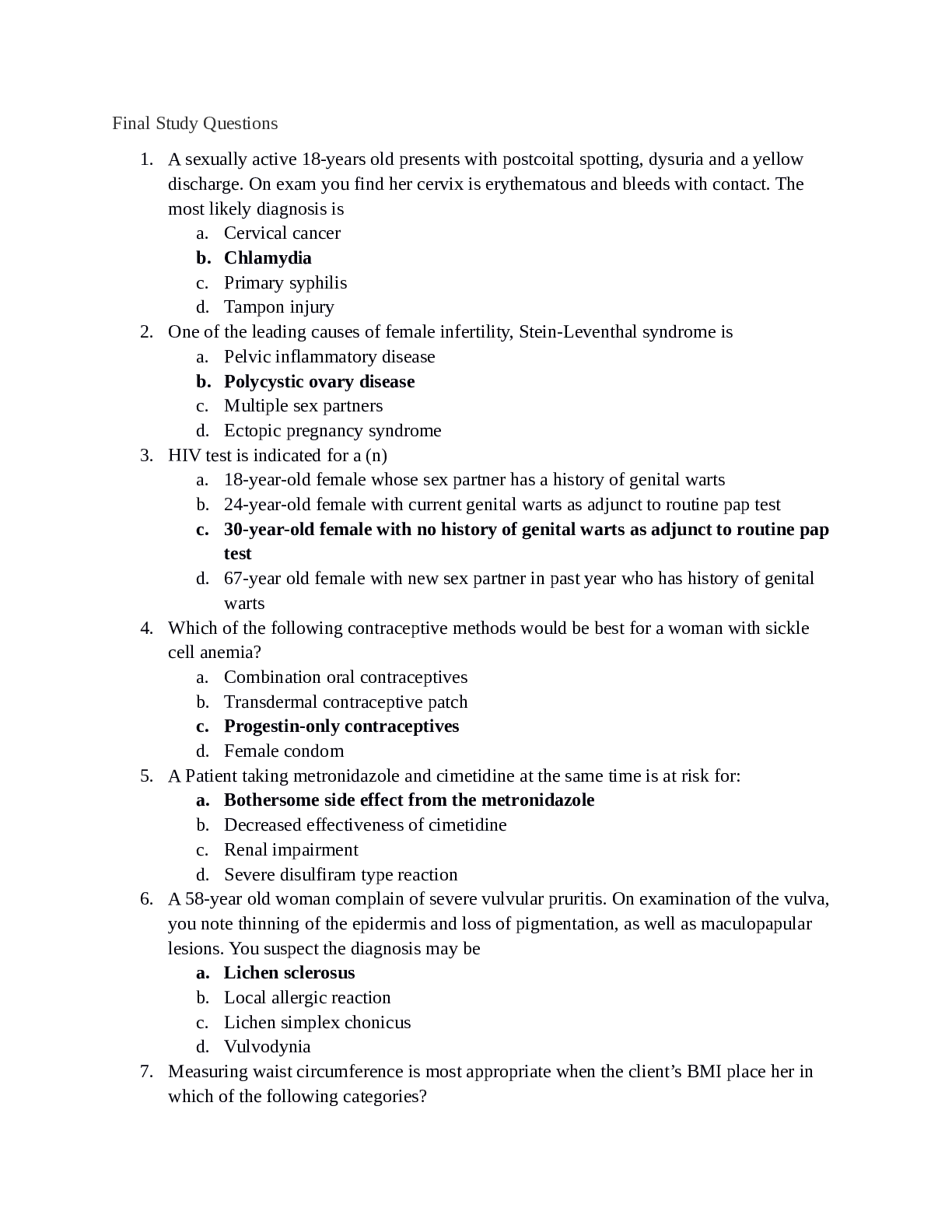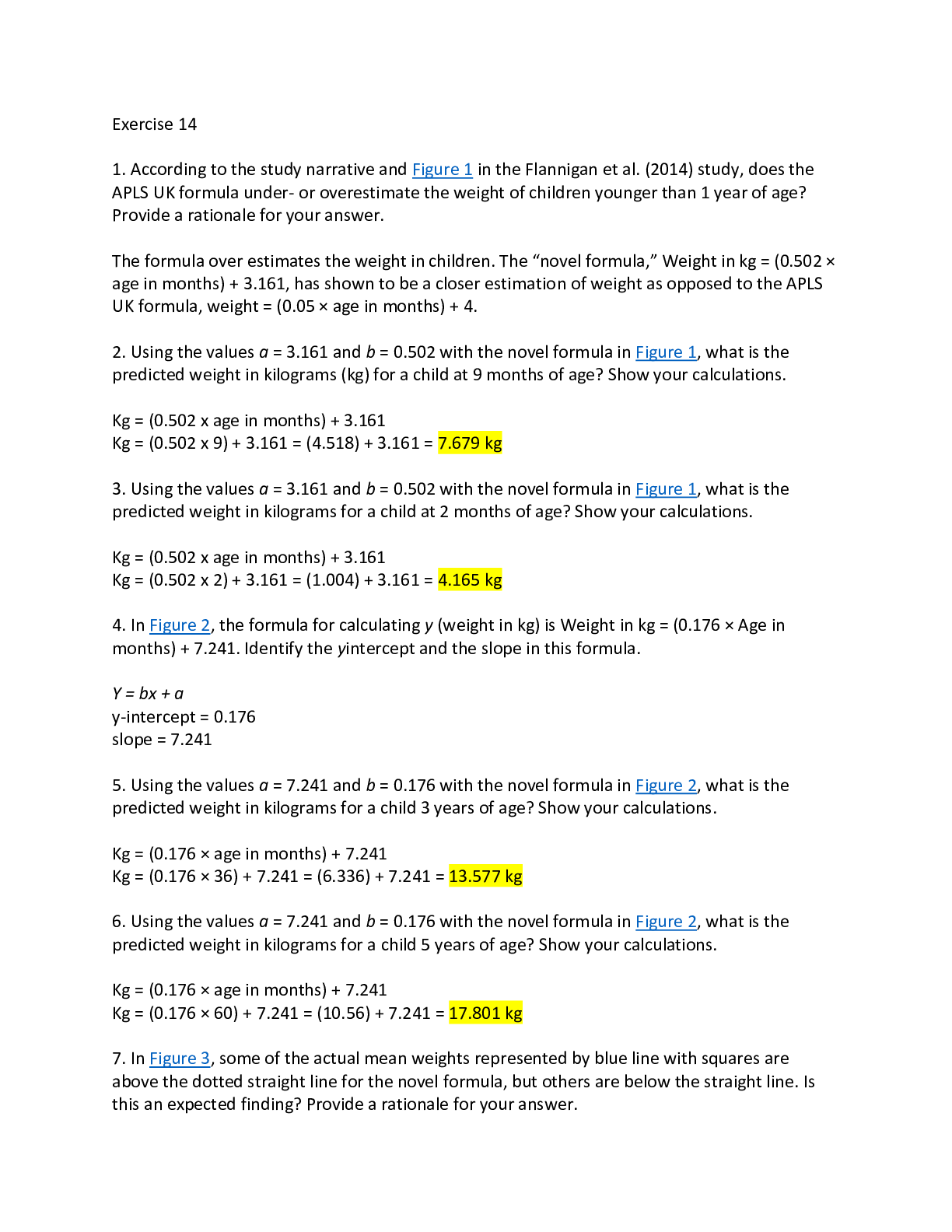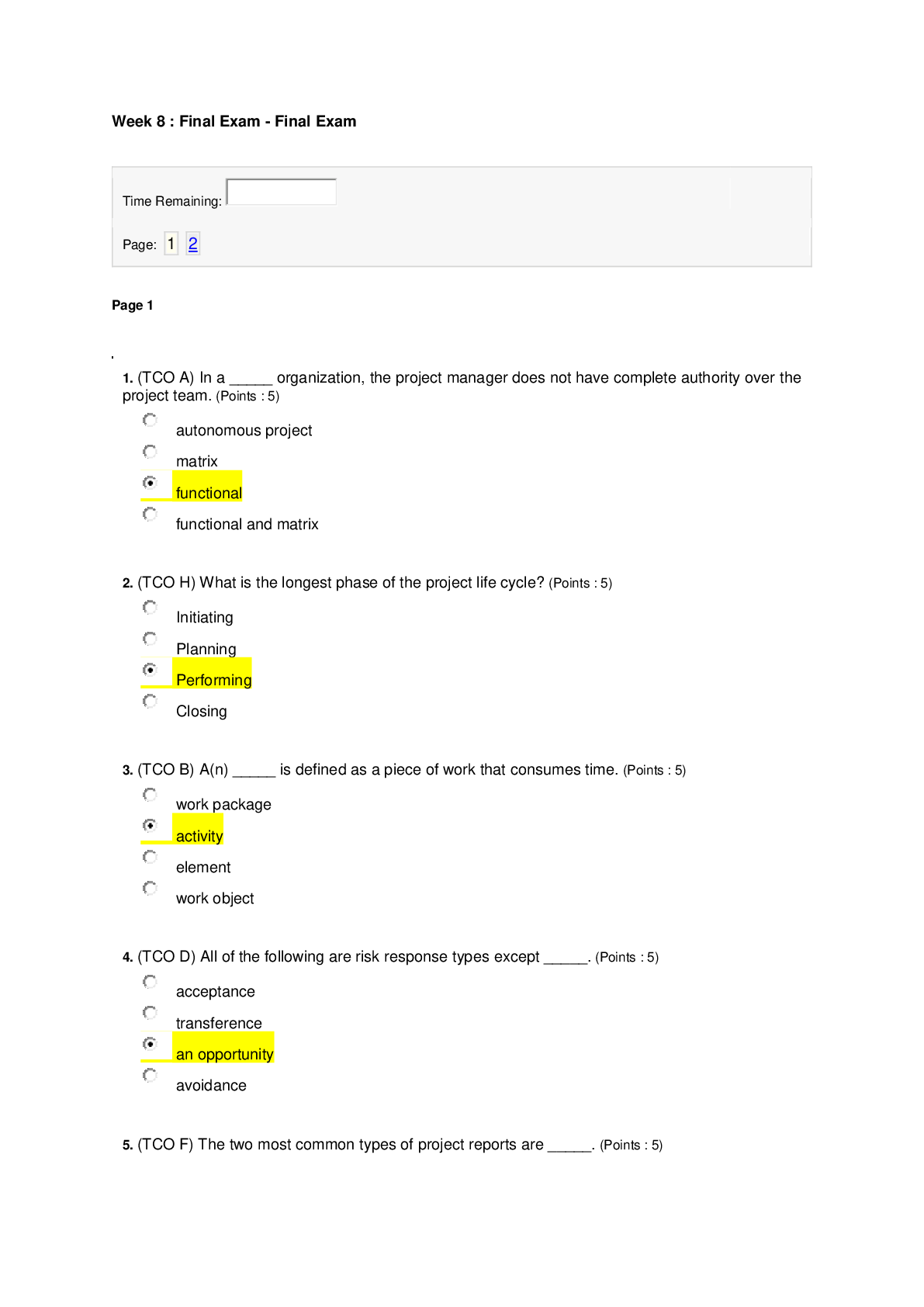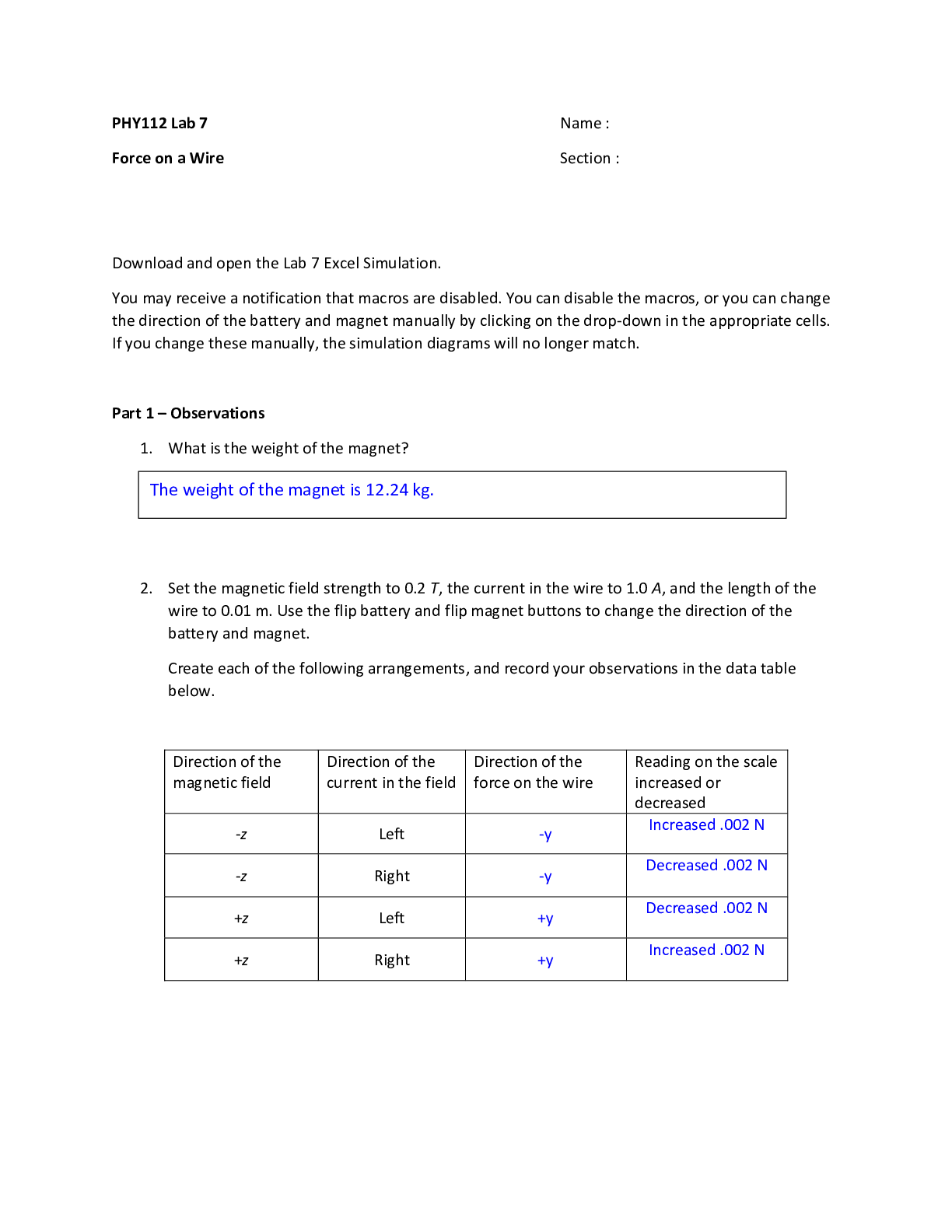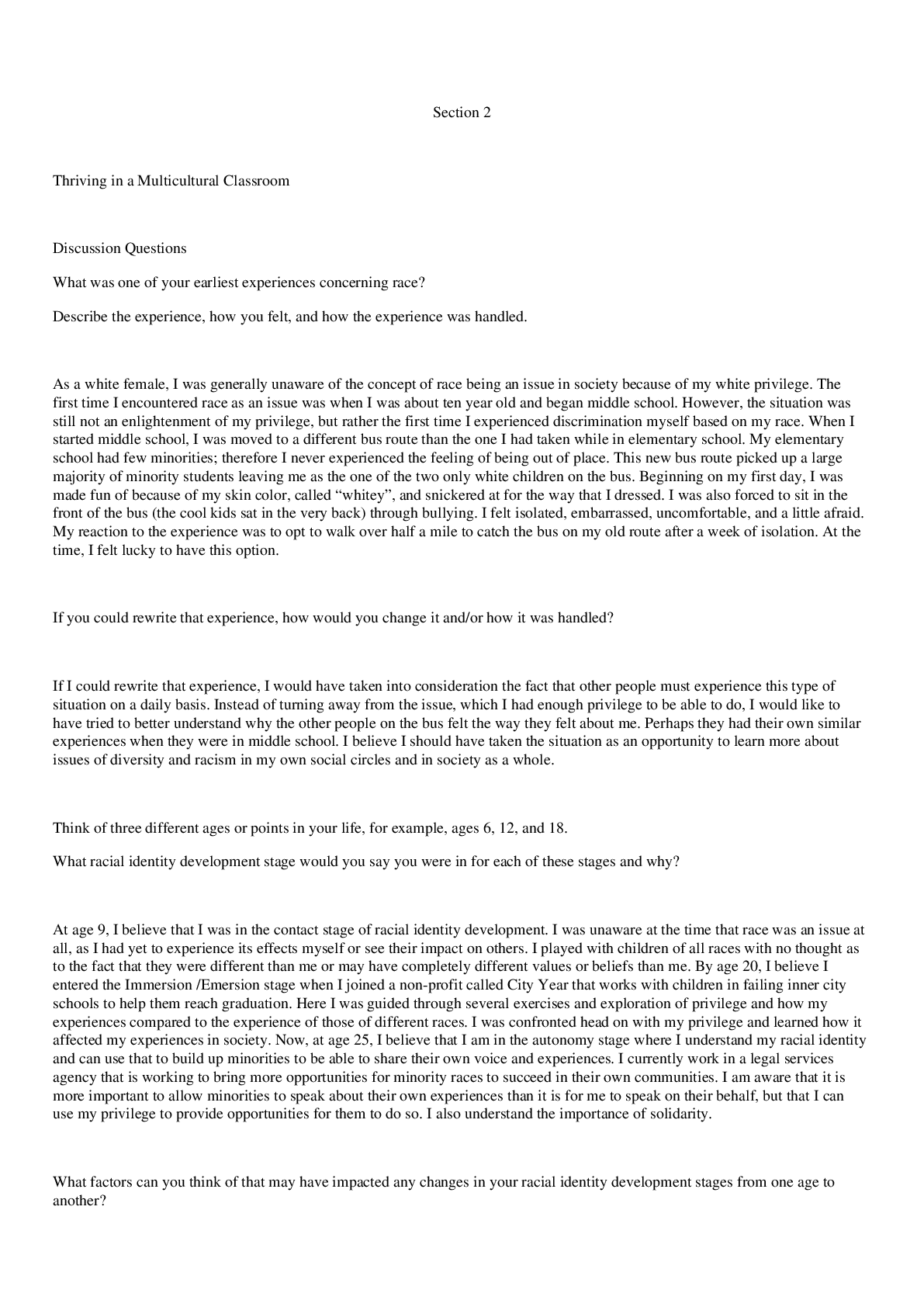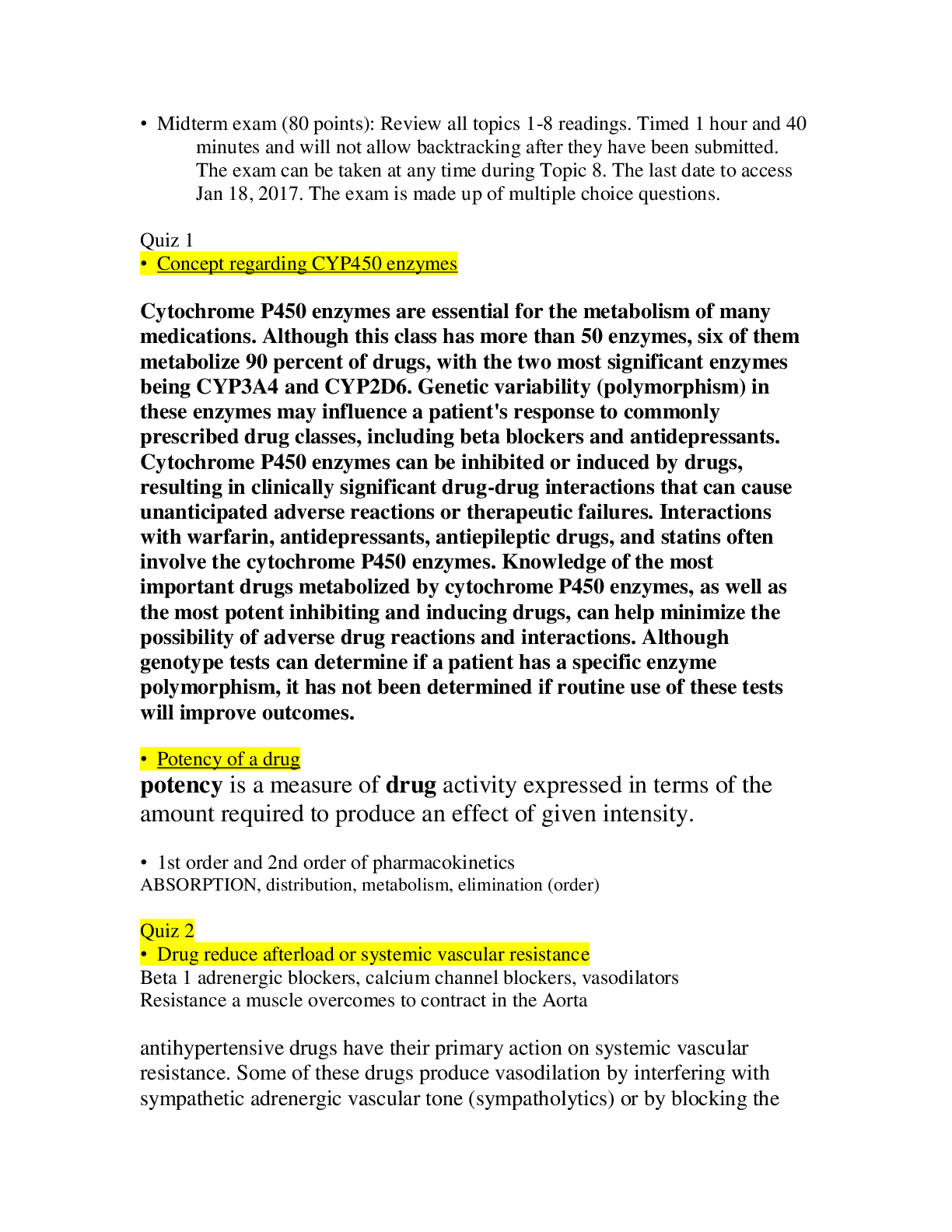*NURSING > STUDY GUIDE > NR 503:Midterm Study Guide (All)
NR 503:Midterm Study Guide
Document Content and Description Below
Week One – Definitions Epidemiology – Greek words epi, meaning on or upon; demos, meaning people, and logos, meaning the study of. Epidemiology is the study of the distribution and determinants ... of healthrelated states or events in specified populations and the application of this study to the control of health problems. Disease surveillance – The principal notification system in the United Sates is the National Notifiable Disease Surveillance System (NNDSS). This is state and local vital data for monitoring deaths from certain infectious diseases (influenza and aids). Surveillance for chronic disease usually relies upon health care related data (hospital discharge, surveys, mortality data from vital statistics). Tracks both active and passive diseases. Identifies stages of the disease within an individual and the populations, measures of incidence, attack rate, prevalence, mortality rates, case-fatality rates and years of potential life lost. Endemic – A disease or condition regularly found among particular people or in a certain area. “Malaria is an endemic” p. 22 Epidemic – A widespread occurrence of an infectious disease in a community at a particular time. “a flu is epidemic” p. 23 Epidemic curve – the distribution of the times of onset of the disease p. 29 Herd Immunity – resistance of a group to an attack by a disease to which a large proportion of the members of the group are immune p 26 Incubation period – the interval from receipt of infection to the time of onset of clinical illness p. 27 Immunity – not susceptible to the disease p. 26 Pandemic – Of a disease prevalent over a whole country or the world. An outbreak of a pandemic disease p. 23 Common vehicle exposure – Refers to agents transmitted by a common inanimate vehicle (food), with multiple cases resulting from such exposure p. 25 Single exposure – one instance of exposure (multiple exposures; food served more than once) Horizontal and vertical disease transmission Morbidity – The condition of being diseased. The rate of disease in a population. Mortality – The state of being subject to death. Death, especially on a large scale. Risk – AKA relative risk – compares the risk of a health event (disease, injury, risk factor, or death) among one group with the risk among another group. It does so by dividing the risk (incidence proportion, attack rate) in group 1 by the risk in group 2. Incidence – a measure of the probability of occurrence of a given medical condition in a population within a specified period of time. Although sometimes loosely expressed simply as the number of new cases during some time period, it is better expressed as a proportion or a rate with a denominator. Prevalence – Being widespread and it is distinct from incidence. It is a measurement of all individuals affected by the disease at a particular time, whereas incidence is a measurement of the number of new individuals who contract a disease during a particular period of time. The number of cases of a disease in a given time regardless of when it began. (new and old cases). Mortality rates – A measure of the frequency of occurrence of death in a defined population [Show More]
Last updated: 2 years ago
Preview 1 out of 3 pages
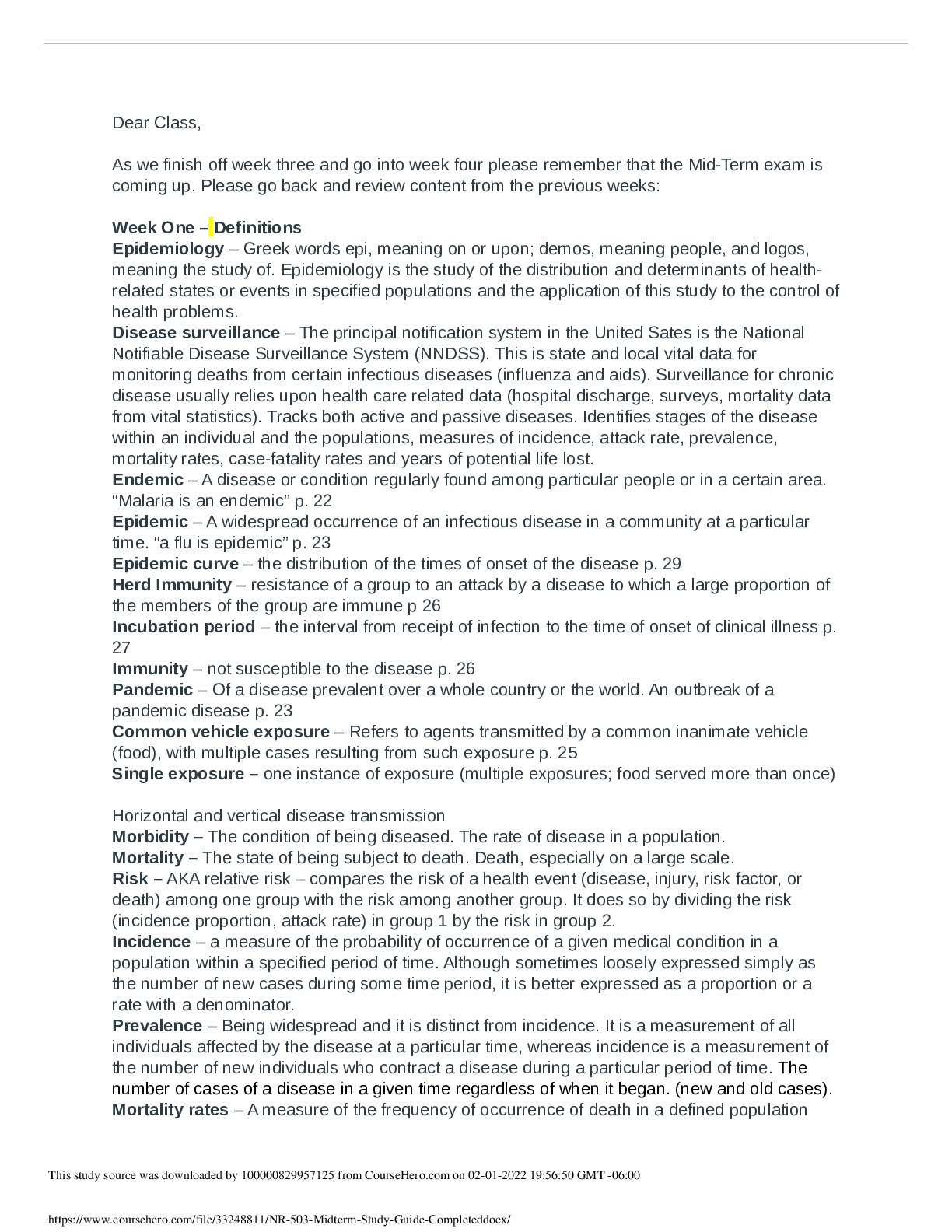
Buy this document to get the full access instantly
Instant Download Access after purchase
Buy NowInstant download
We Accept:

Reviews( 0 )
$8.00
Can't find what you want? Try our AI powered Search
Document information
Connected school, study & course
About the document
Uploaded On
Jul 03, 2021
Number of pages
3
Written in
Additional information
This document has been written for:
Uploaded
Jul 03, 2021
Downloads
0
Views
60

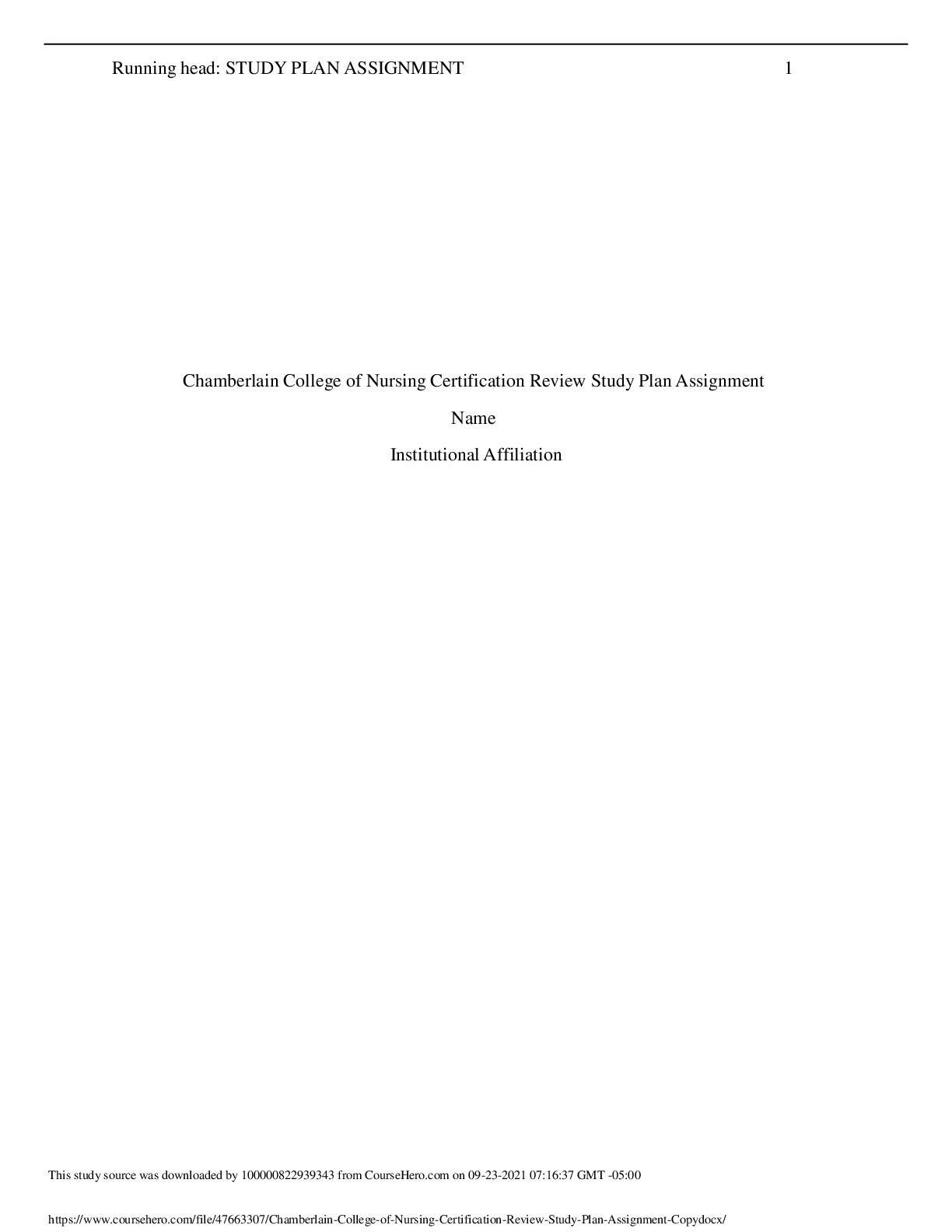
 - Latest 2022.png)

 - A Graded, Quality Work.png)
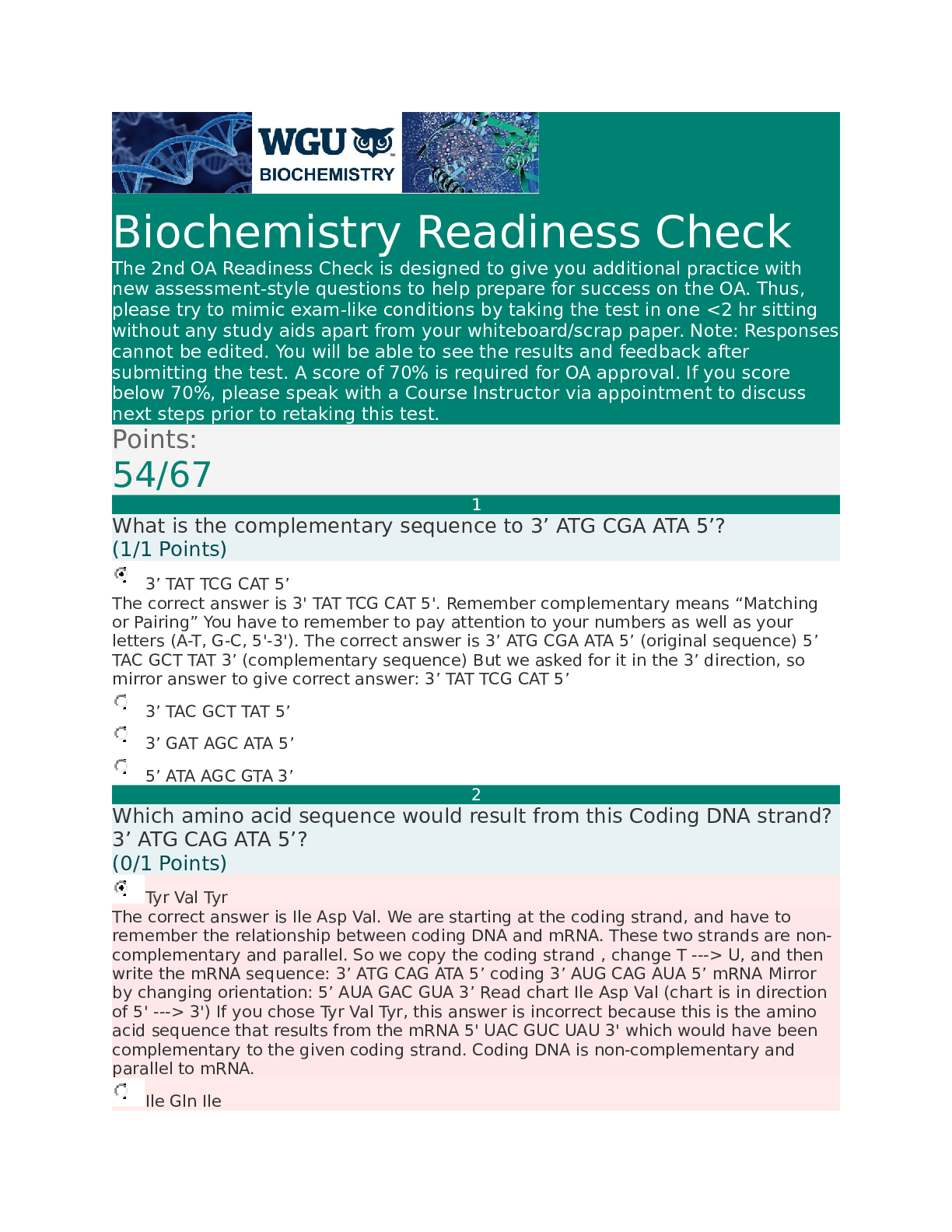
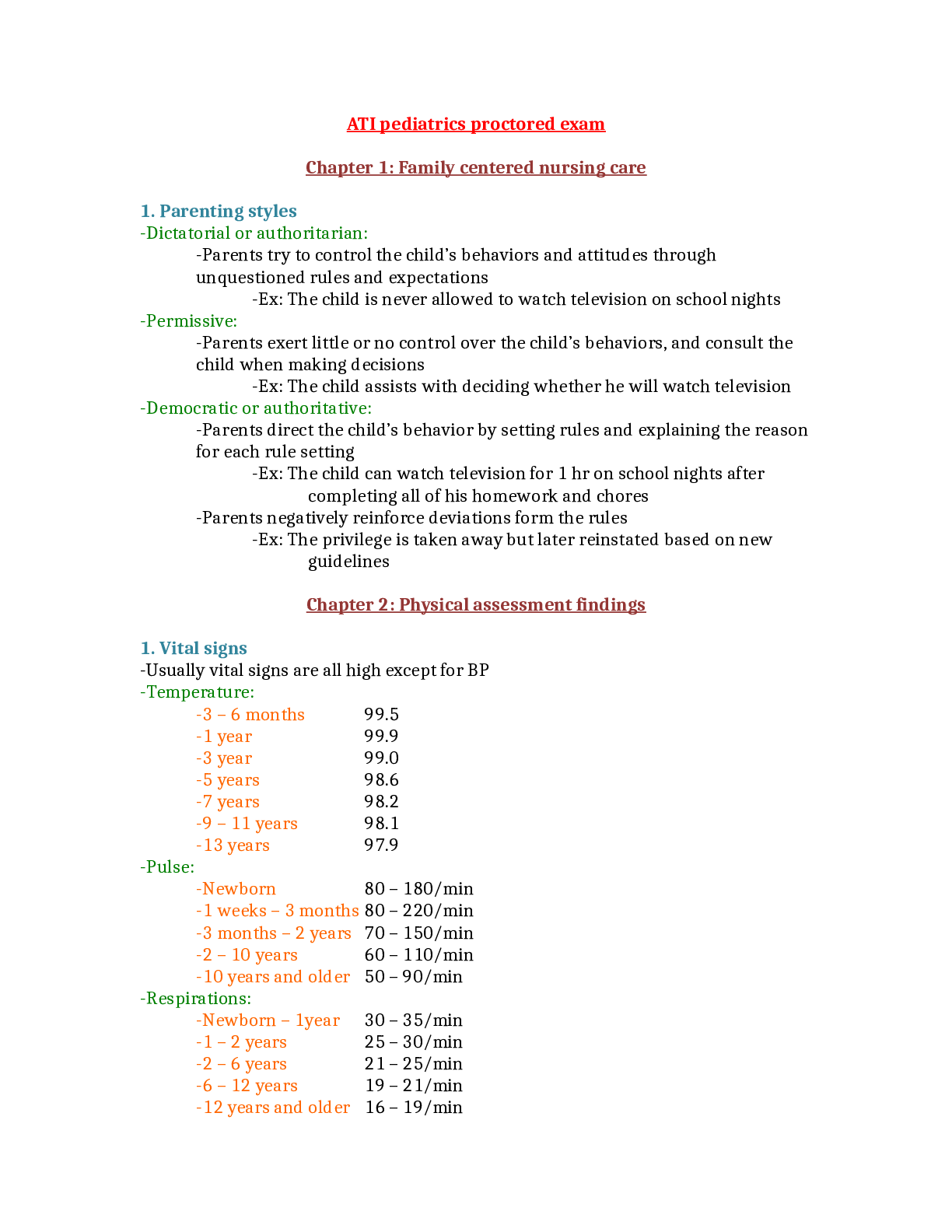
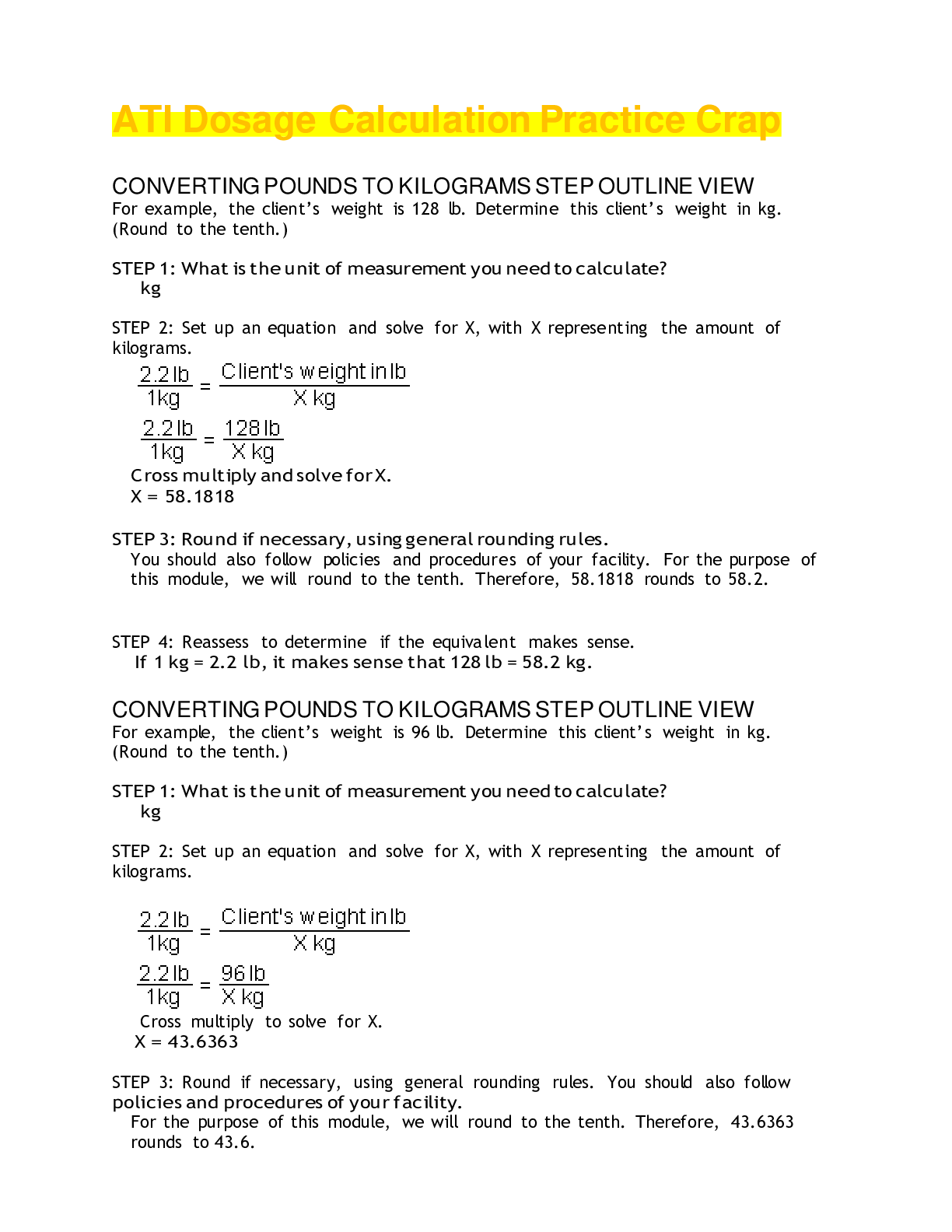


_Score 2831 Art history 1 Challenge Milestone 1 unit 1 Sophia Course (solution).png)

